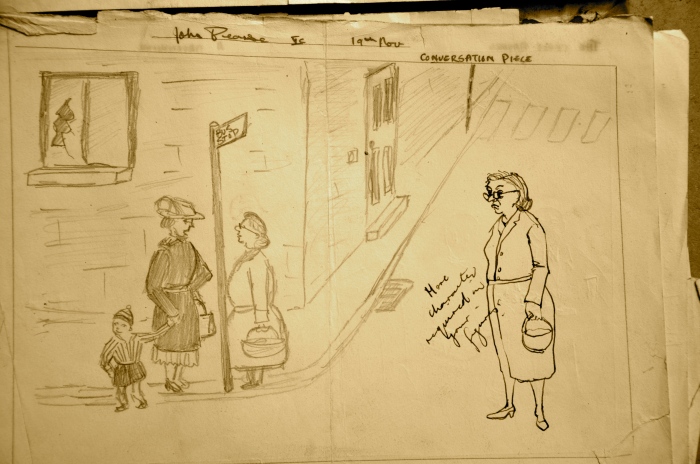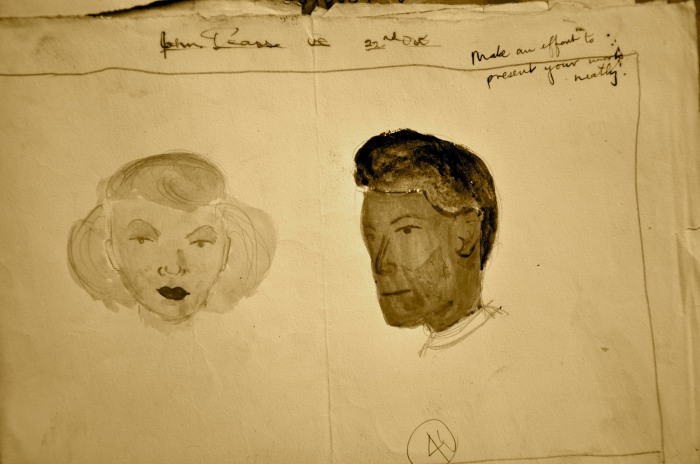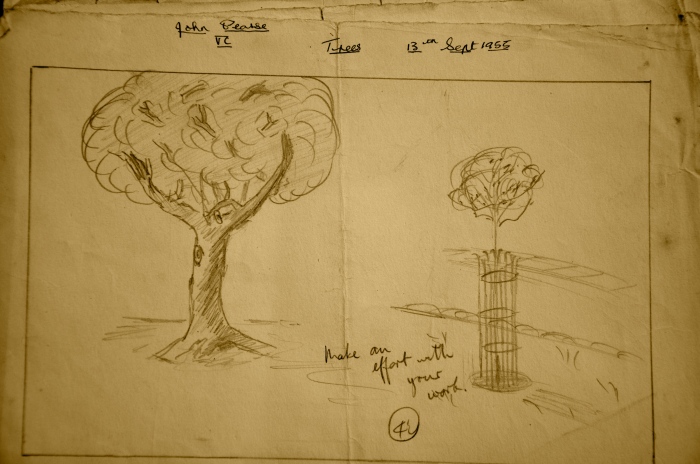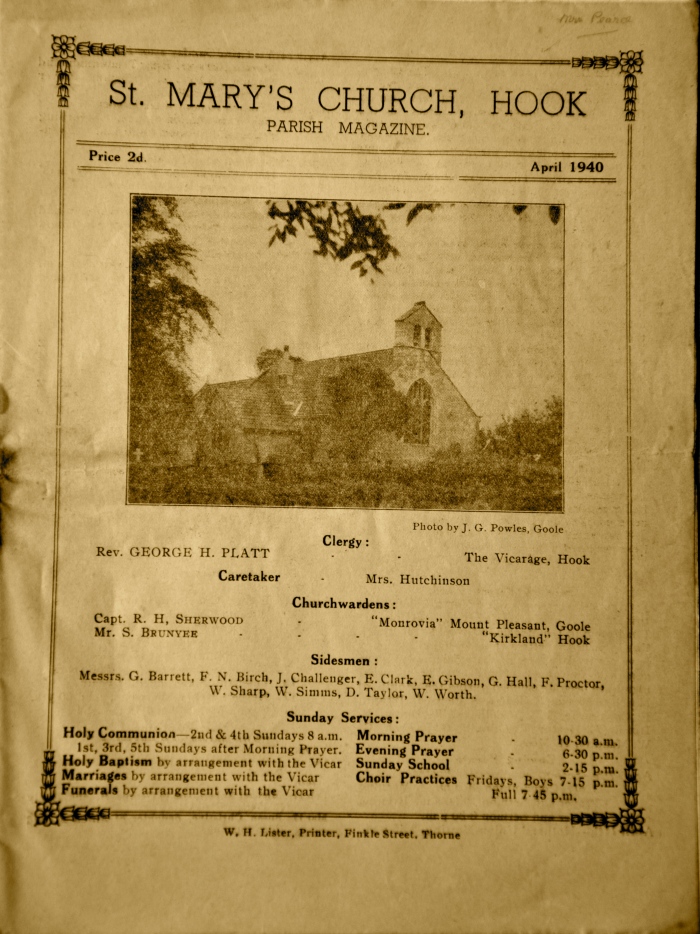If you want your bill at a German restaurant you say, “Die Rechnung, bitte,” which means the reckoning. And that’s what I’ve been doing by cleaning out my garage and going through personal things — I’m reconciling the past, settling up.
I had two boxes left and was running out of steam. These boxes contain remnants of my life, my wife’s, my mom’s and stepdad John.
Yesterday I found John’s notebook from when he attended English public school in the 1950s, along with notes by the professor and John’s handwriting as an adolescent, drawings that were graded with critical remarks, which seems excessively cruel even for English headmasters.
It’s impossible to go through these things and not see the person there. It is really like releasing a Genie from a lamp.
John told fantastic stories, lived a fantastic life — fantastic in the true spirit of the word, born out of fantasy. Sometimes it was hard to follow or fathom the stories about all the people he’d met, the places he’d been. The fantastic became commonplace.
I dragged the plastic bin to the edge of the driveway just inside the garage, as a storm was coming on. And here was a photo of a church in Wales — sure enough, the church where he was baptized, accompanied by the programme dated April 1940, with notes inside about soldiers and donations and so forth.
And newspaper clippings in German with his handwriting at the top, with the date. All the German text with the name John Pearse that stands out in the middle.
There are photos of John with his first wife playing the fiddle and John, smoking a pipe in a Gandalf-pose. We never talked about Terry, who John married when he was young: he’d left England for mainland Europe one time and while gone, she was raped by one of her guitar students and driven into a catatonic state for the balance of their marriage, which John annulled some time later.
There are photos of John in a tuxedo, surely off to be married, a copy of their wedding programme, not much else.
And a letter John saved from Frank Martin, the owner of Martin guitars, dated 1958 and typed, a response to John’s inquiry about wanting to own a Martin one day. He would go on to work for Martin as a designer some 25 years later, amassing Martins along the way. He saved the letter for sentimental reasons, nourishing his dream to own a Martin.
So it’s hard to go through these things and not see pieces of the person buried inside the boxes, dreams hatching and keepsakes representing key moments in time. I feel like a burglar breaking into my own house, going through these things, and as I look at his photos I’m compelled to retell his story some day, as a way of honoring him.
John and my mom moved to Germany because John had enjoyed the most success there as a musician. Germans responded to the tradition of American Folk music — Volksmusik — more than elsewhere, and it was perhaps the best memories for John, in small German villages playing clubs, getting to know the locals and their traditions.
Amid these clippings I find notes I wrote to him that he’d saved, snapshots from our time together and wishes for many more.
I find a binder with information on coastal juvenile salmonids from a research project I worked on to restore salmon populations, funded by Starbucks when the company was encouraging people to get involved with environmental endeavors, a kind of misguided PR thing perhaps, but its heart in the right place.
I gutted the binder to make room for my manuscript which I’ll finish, print and read on a flight to Germany next month to transport our pets and leave them there until we all return for nine months at the end of July. I tore off a piece of blue painter’s tape, put it on the binder’s spine and wrote “The Last 22 Years.”
Categories: writing











I love digging into family history, so this is a very cool post. I enjoyed learning about your stepdad. It was also a bit mind-boggling. My grandfather was born in London in the 1920s and was an ethnomusicologist as well. He eventually came to the states where he focused on Eskimo and Indian music and taught at a university. Unfortunately, he seemed to also be, according to family stories, a pathological liar, leaving a trail of women, children and shady facts in his wake. Still, it’s a story I’d like to write someday.
LikeLiked by 1 person
Nice Michelle – that’s neat your grandfather was an ethnomusicologist too. Gosh, that word’s hard to type. It sounds like you have an interesting story in him, too. Happy you enjoyed learning a bit about John — he was dearly loved and missed, but really made a mark on us.
LikeLike
My grandfather left a very different mark on us, but that’s a tale for another day. I always envy people who have lovable relatives just a little bit, but it’s good to see what love looks like and you conveyed it here.
LikeLiked by 1 person
Thank you Michelle.
LikeLike
Fascinating. What a time to be alive in that post-war of possibility.
I just finished reading All My Puny Sorrows, which I recommend. It references the opening paragraph of Lady Chatterly’s Lover:
“Ours is essentially a tragic age, so we refuse to take it tragically. The cataclysm has happened, we are among the ruins, we start to build up new little habitats, to have new little hopes. It is rather hard work: there is now no smooth road into the future: but we go round, or scramble over the obstacles. We’ve got to live, no matter how many skies have fallen.”
Could be said of any age, Lawrence’s your step-dad’s, ours.
LikeLiked by 2 people
That is a beautiful quote Ross: enough to make me want to read the book, thank you. Is this the same Canadian writer we might have spoken of before? Perhaps, can’t remember — probably quite a few Canadian writers, but there are many skies to fall and not enough hands to catch them. (I apologise for that: writer-guy-dude-noogie, or something of some-sort.)
LikeLike
I just downloaded it a few minutes ago. I always found Lawrence hard slogging, but I’ll give his smutty book a shot.
I don’t think I’ve mentioned her; first time for me. Might have been Lynn Coady I mentioned.
LikeLike
It’s always fascinating to go through the old family history boxes, thanks for sharing some of yours with us. “Poor work” seems quite harsh indeed.
LikeLiked by 1 person
Yeah, they don’t pull punches there, those English teachers. Glad you found this interesting and thank you for sharing your comments! Cheers, – Bill
LikeLike
Its always been a good feeling to go through old stuff. Thank you for sharing.
LikeLike
My pleasure–thanks for reading!
LikeLike
Bill, loved the school books with the direct, slightly cruel comments. It does remind me that there was a time when no one questioned authority and those in authority took it upon themselves to put the boot to the old head. Your step-father’s life seems to straddle that time and the time when no one over 30 was to be trusted. Fascinating.
LikeLike
I’m glad you enjoyed it Jon, thanks. Must be funny for you as an English teacher, imagine that Headmaster figure from like The Wall or something. John was sent off to public school at a very young age, didn’t really see his parents much. They concocted schemes to make bombs and mount them inside toilets; I think they truly wanted to kill their professors. Wish I could remember more of those stories, but we were often in the haze of post-prandial conversation.
LikeLike
My students enjoy reading my snarky comments aloud after I pass back essays. Twenty years from now an underlined bit of text with a “this is terrible” will probably look pretty mean.
LikeLiked by 1 person
Don’t forget Ivan Doig. He took bits of family history/personal experiences and spun them into new characters with real substance. Really good writing comes out of who you ARE. It is good to take time to read through these things, let the experiences filter through like a coffee-maker and I hope you come out writing something HOT and GOOD.
LikeLike
You rock Valarie!! Thanks so much. Bill
LikeLiked by 1 person
You are too hard on yourself; I want to see you do well. Don’t talk to yourself like that mean teacher with the hypercritical marks! Focus, then just write, write, write!
LikeLike
Thank you Valarie: you are too kind. I appreciate it.
LikeLike
I don’t believe in mollycoddling kids or giving them false praise but those comments rankled me. I’d like to take those headmasters and give them a swift kick in the teeth.
Does this set you to wonder about your own legacy? What you’ve built? It does for me. Mixed results. Could have made more of an effort. Ah-ha! Now we’re getting to the core of it!
LikeLike
That’s right, Mark: the title of my memoir, “Much More Effort Required.” I like you used the term mollycoddling. Have a great week. – Bill
LikeLike